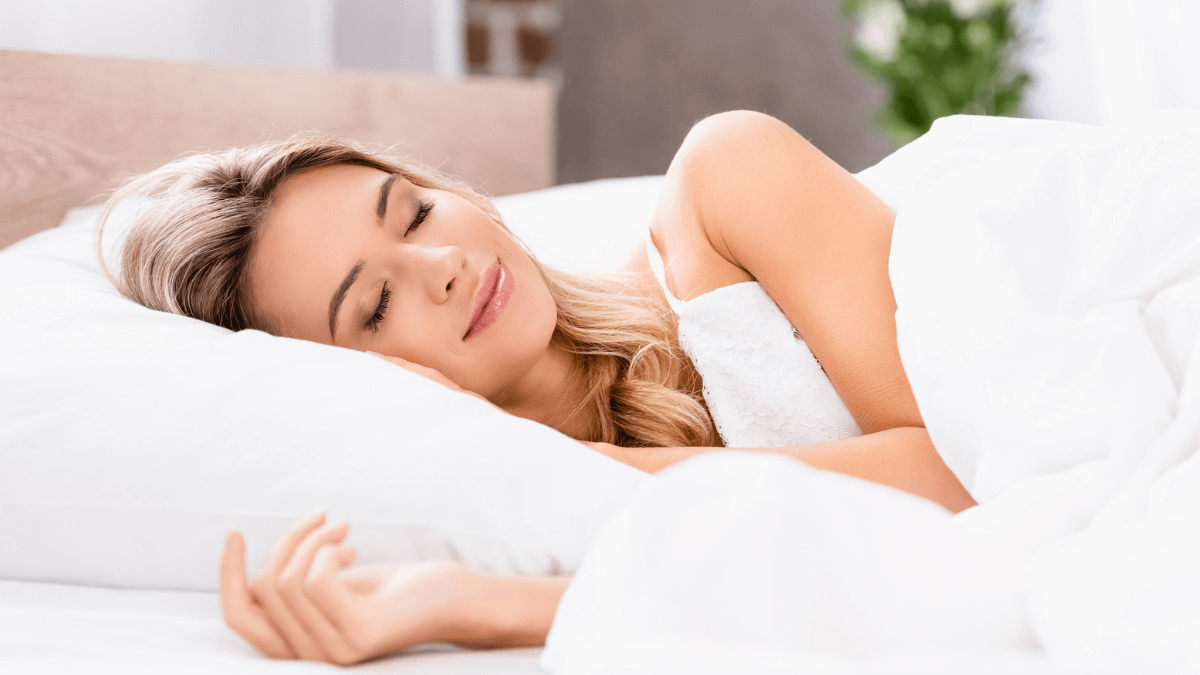For centuries, the full moon has been a source of fascination and popular belief. One of these is the idea that it disrupts sleep. Insomnia, restless nights, waking up at night… Many people claim to feel a direct impact of this luminous star on their rest. But what is it really? Is it a simple coincidence, a psychological effect or a genuine scientific influence? Here’s how.
An age-old belief
The association between the full moon and sleep disorders is nothing new. In many cultures, the moon was seen as a mystical element capable of influencing human behavior. The ancient Egyptians, for example, believed that the full moon could trigger epileptic seizures. In Western tradition, it has long been associated with madness (hence the term “lunatic”) and unexplained phenomena.
In the field of sleep, the idea that the moon can disturb our nights has been passed down from generation to generation, though without any real scientific proof. However, in this age of technological advances and in-depth studies on the subject, it’s worth taking a look at the facts.
What science says
Several studies have attempted to measure the real impact of the full moon on human sleep. One of the most widely cited is a 2013 study by researchers at the University of Basel, Switzerland. According to their findings, the duration of deep sleep was reduced by 30% during a full moon, and participants took an average of five minutes longer to fall asleep. In addition, production of the sleep hormone melatonin was lower at this time.
However, these findings have been called into question by other, more recent studies. In 2014, researchers at Oxford University attempted to reproduce the experiment on a larger sample, without reaching the same conclusions. They observed no significant correlation between moon phases and sleep quality.
In 2021, however, another study conducted by the University of Washington found similarities in the sleep patterns of several populations, noting a slight tendency to fall asleep later during the full moon. This phenomenon could be explained by environmental factors, rather than by any real gravitational influence of the moon on our organism.
While scientific studies are mixed on the question, one thing is certain: our perception of the full moon plays a key role. The placebo effect can be powerful. If a person is convinced that the full moon will disturb their sleep, they may pay more attention to their night-time awakenings and attribute them to the star, thus reinforcing this belief.
What’s more, the full moon is brighter than other lunar phases. For those who sleep with non-darkening curtains or exposed to outside light, this increased intensity could influence sleep quality. Light exposure of any kind is known to inhibit melatonin production and delay sleep onset.
On a biological level, some scientists suggest that the moon may have an indirect influence on our internal clock. Human circadian rhythms are closely linked to natural cycles, and in particular to daylight. The full moon could therefore play a small, but hardly measurable, role in our sleep.
How can we improve our sleep during a full moon?
Whether the moon’s influence is real or not, it’s always a good idea to adopt good sleeping habits to avoid any nocturnal disturbances.
Here are a few tips to optimize your rest:
- Limit exposure to blue light: Avoid screens (phones, tablets, computers) before bedtime, as they block melatonin production.
- Use blackout curtains: If you’re sensitive to the light of a full moon, equip your bedroom with thick curtains to create total darkness.
- Avoid stimulants in the evening: Caffeine and alcohol can alter sleep quality. Choose relaxing herbal teas such as chamomile or valerian.
- Adopt a soothing routine: Reading a book, meditating or taking a hot bath before bed can help you fall asleep faster.
- Keep to a regular bedtime schedule: Going to bed and waking up at fixed times helps stabilize the circadian rhythm, whatever the phase of the moon.
Moon and sleep: conclusion
So, does the full moon really influence our sleep? The answer is not clear-cut. While some studies suggest a moderate effect, others find no significant correlation. On the other hand, the psychological and environmental impact (more intense light) is very real for many people.
Rather than dreading full-moon nights, it’s better to focus on healthy habits to improve sleep quality on a daily basis. To find out more about the best solutions for a good night’s sleep and discover practical advice, visit the Hypnia website.

